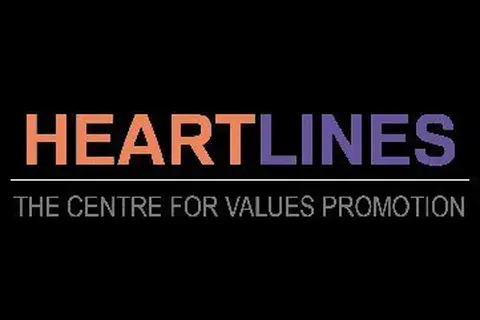Becoming Men! Overcoming toxic masculinities in South Africa
Societal norms strongly influence people’s perceptions, beliefs, behaviours and values. They shape relationships within the home, and the way men father. Conversations that seek to understand, as well as challenge, these norms, may help us address issues such as toxic masculinities and gender-based violence. They may also help us support those who want to be the best fathers they can be – despite not having role models.
The second webinar in a four-part series considering key issues around men, masculinities and fatherhood was hosted by Heartlines on 26 August 2020. The series is presented in partnership with the DSI-NRF Centre of Human Excellence and the National Research Foundation, and funded by the Oak Foundation.
Teenage fathers do want to be involved
Panellist Associate Professor Malose Langa of the University of the Witwatersrand Department of Psychology presented findings from his qualitative case studies of teenage fathers in Alexandra, a township in Johannesburg, over a period of 12 years. Some of his observations focused on teenage fathers and were in some cases, contrary to established research.
What Langa found is that the teenage fathers that he studied wanted to be actively involved fathers, despite having no positive male role models or father figures themselves. This goes against dominant research on this issue, which supposes that men without a father figure have more chance of also becoming poor male role models. This research, and perhaps even society at large, also tends towards portraying teenage fathers as neglectful, and unsupportive.
“I can’t enjoy it (being a teenager) anymore since having a child, (eish) it’s difficult. Everything I do I must do to please her because I brought her into the world and not to make her suffer,” said Oupa, one of the participants in Langa’s study. Unlike the stereotypical assumptions attached to teenage fathers, Oupa and others in the group chose to support their child and his/ her mother - even if it meant missing out on school for clinic and hospital visits and having less money to spend on themselves. In some cases, he pointed out, teenage fathers saw it as an opportunity for growth.
Out of the 16 participants in Langa’s study, not one had a positively present father. Eleven of them did not know their fathers, three knew them but were not living with them and the remaining two lived with fathers who were emotionally absent and abusive. Despite this, they expressly stated their desire to be better fathers than their own. Nelson mentioned that he would talk to his son about sex and teenage pregnancy because “ not want him to do the mistakes did. also to show him love and care”. Langa’s studies concluded that these teenage fathers were more willing to step into the role of fatherhood than generally expected.
Fatherhood and gender-based violence
“Gender-based violence (GBV) and father (dis)connections in South Africa are currently at a rate that suggests more research is required on this”, stated Associate Professor Mzikazi Nduna, also of the University of the Witwatersrand Department of Psychology. She mentioned that such research was necessary to address legal loopholes, policy shortcomings and identify opportunities for behavioural change interventions in these areas.
Regarding the link between fatherhood and GBV, Nduna stated that men who perpetrate GBV are, or will become, fathers at some point. She also mentioned that there is emerging evidence that femicide and GBV are linked in some way to a “father disconnect”. Furthermore, in some cases where a child was conceived out of incest, or rape by a stranger, the identity of the father would remain concealed or unknown. Maduna stated there was still much research to be done to understand whether children whose fathers are absent are more predisposed to perpetrating GBV.
Both panellists touched on the role of society at large in influencing the behaviour of young men especially. “South Africans watch many soapies, and the scripts are very normative, and they do not provide alternative narratives. I am hoping that we will see scripts challenging these norms”, said Langa. On explaining toxic and abusive behaviour of men raised in single-mother households, Nduna stated that the violent behaviour is generally not learnt from their mothers, and that “there's enough role-modelling from society for him to behave in this way”.
In closing, Langa said that while he did not have a “ready-made” recommendation to address the issues around fatherhood, toxic masculinities and GBV, an important tool was to have conversations on these topics - in public (media) and private spaces (home). “We need to do things differently”, he said.
How churches and community leaders can get involved
Community leaders and churches can play an invaluable role in starting conversations around these topics and providing guidance to men and boys seeking to be healthier individuals, which impacts how they father.
If you would like to take active steps in promoting these conversations, we would like to suggest the following:
- Start the conversation about emotions – positive and negative, and also provide a safe space to deal with harmful behaviours. Sharing the “How do boys become men?” on your social media platforms may be a good way to get the conversation started.
- Equip yourself with resources that will help you facilitate meaningful engagement that leads to change. Visit Heartlines’ Fathers Matter website and sign up.
- Join us for the rest of the webinar series as we continue to unpack key issues around fatherhood in South Africa with a wide range of experts in their respective fields.
Featured
